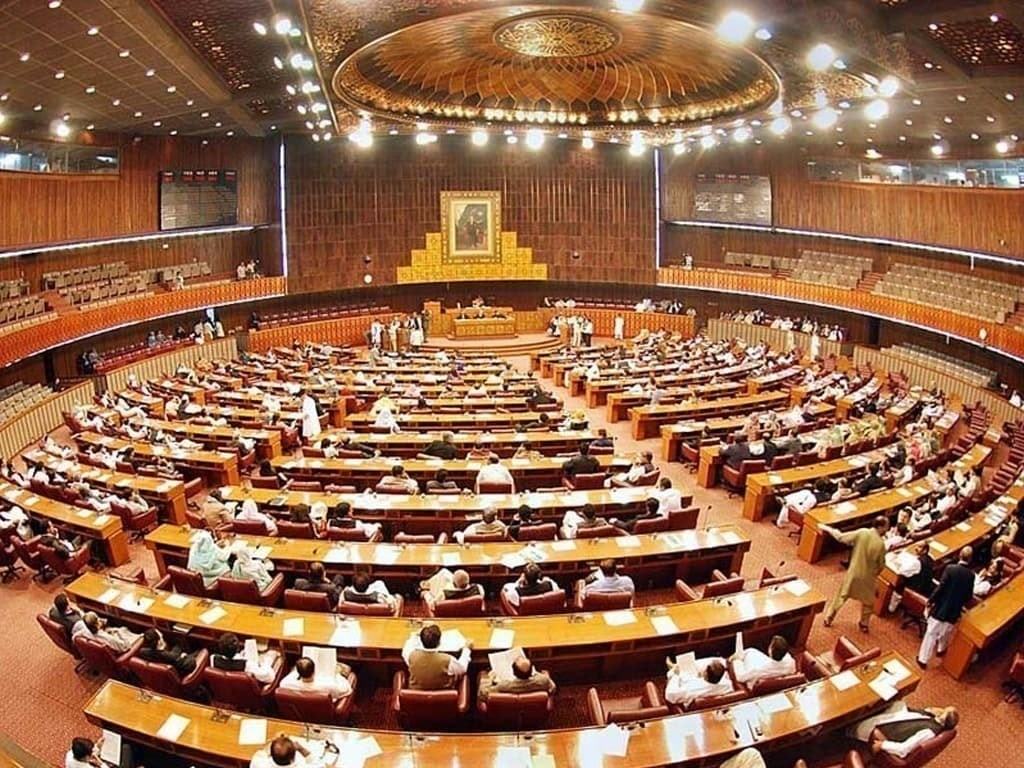PTBP Web Desk
The Prevention of Electronic Crimes (Amendment) Bill 2025 made its way to the upper house of Pakistan’s Parliament following its passage in the National Assembly. The bill, which has sparked widespread debate and opposition, was introduced in the Senate on Friday, triggering an immediate protest from opposition lawmakers and journalists.
The session, which lasted less than 15 minutes, was marked by chaos as Law Minister Azam Tarar, standing in for the absent Interior Minister Mohsin Naqvi, tabled the bill. The opposition responded with vociferous chants and slogans, decrying the legislation as an assault on free speech. This led to journalists staging a walkout from the Senate’s press gallery, underscoring the bill’s contentious nature.
The PECA Amendment Bill 2025 is crafted to impose stringent controls on electronic communication, particularly targeting social media platforms. Critics argue that it threatens the very foundation of freedom of expression by introducing severe penalties for the dissemination of what the bill deems as ‘fake or false information.’ Under Section 26A of the proposed amendment, individuals can face imprisonment for up to three years, or a fine of up to two million rupees, or both, for sharing information known or believed to be misleading, which could cause panic or disorder among the public.
The amendment envisages the creation of several new regulatory and judicial bodies, including the Social Protection and Regulatory Authority, the Cybercrime Investigation Agency, and the Social Media Protection Tribunal. These entities would have sweeping powers to regulate content, including:
Blocking content deemed against the ideology of Pakistan.
Preventing incitement to law-breaking or violence.
Protecting against defamation of public figures and institutions.
Curbing the spread of obscene or pornographic material.
These provisions have raised alarm among civil rights groups, digital rights activists, and media professionals, who fear misuse for political censorship or suppression of dissent.
Despite the government’s apparent readiness to push the bill through, Senate Deputy Chairman Syedaal Khan, amidst the ongoing protests, decided to refer the bill to a relevant committee for further scrutiny. This move provides a temporary reprieve, ordering the committee to deliver its report within three days, indicating the urgency with which the government wishes to proceed.
The public outcry has been significant, with various sectors of society, including journalists and opposition parties, voicing their concerns. The fear is that such laws could be employed to stifle legitimate critique under the guise of combating misinformation. Social media platforms have become battlegrounds for free speech, and this amendment could fundamentally alter how information is shared in Pakistan.
During this tumultuous session, three additional bills were introduced and referred to their respective committees, though these did not draw the same level of controversy. The Federal Board of Intermediate and Secondary Education (Amendment) Ordinance 2024 was also presented, but the focus remained squarely on the PECA amendment.
The Senate has been adjourned until Monday, leaving room for intense negotiations and lobbying over the weekend. The fate of the PECA Amendment Bill 2025 hangs in balance, with its passage potentially setting a precedent for how digital rights and freedoms are managed in Pakistan. The next steps will be crucial in determining whether this bill will be moderated to address the concerns of critics or passed in its current form, potentially impacting the landscape of digital communication in the country.
The debate over this bill is reflective of broader global discussions on balancing security, misinformation, and freedom of expression in the digital age. As Pakistan grapples with these issues, the world watches how one of its most populous nations navigates this complex terrain.




